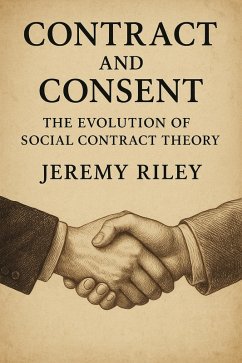The narrative traces the evolution of the social contract, a foundational concept in political thought, and its role in shaping the relationship between the individual and the state. It begins with Hobbes' bleak view of human nature and his justification for absolute sovereignty, followed by Locke's more optimistic vision of government as a protector of natural rights. Rousseau introduces the concept of the general will, challenging traditional notions of political authority, while Kant elevates moral law and individual autonomy as central to the legitimacy of the state.
The book then examines the critiques of liberalism, from Marxist and anarchist perspectives that reject the state's legitimacy altogether, to the rise of neo-liberalism in the late 20th century, which argues for a minimal state focused on individual liberty and free markets. Through these theoretical evolutions, Contract and Consent provides a critical lens on the balance between individual freedom, equality, justice, and political authority.
Drawing on historical context, key philosophical debates, and the evolution of political thought, this book offers an insightful exploration of the social contract's centrality to understanding the modern political landscape and its continued relevance in addressing contemporary issues of governance, justice, and rights.
Dieser Download kann aus rechtlichen Gründen nur mit Rechnungsadresse in A, B, CY, CZ, D, DK, EW, E, FIN, F, GR, H, IRL, I, LT, L, LR, M, NL, PL, P, R, S, SLO, SK ausgeliefert werden.









